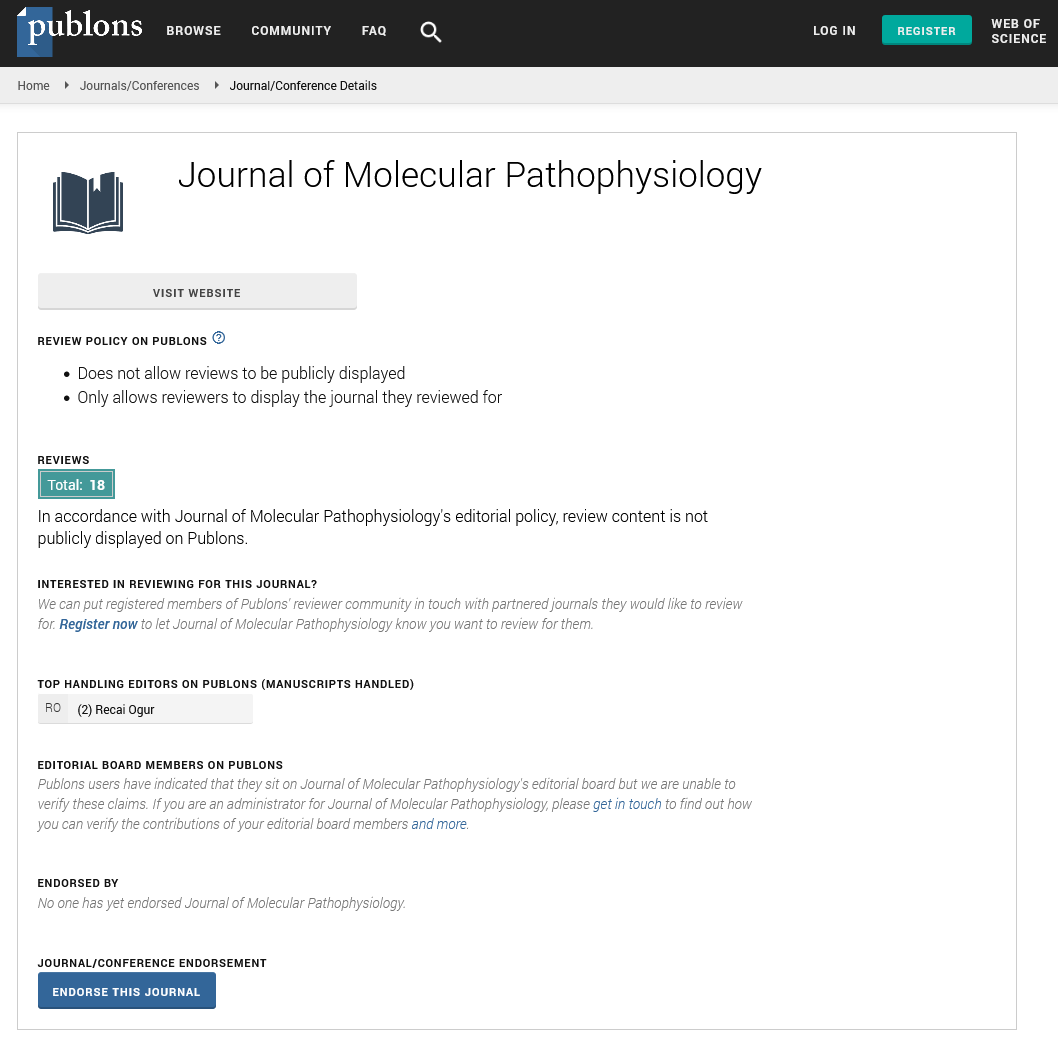Perspective - Journal of Molecular Pathophysiology (2024)
Dialysis and Transplants as Vital Interventions in Chronic Kidney Disease
Celestia Willis*Celestia Willis, Department of Nephrology, University of Toronto, Toronto, Canada, Email: williscele@yahoo.com
Received: 29-Dec-2023, Manuscript No. JMOLPAT-24-126701; Editor assigned: 01-Jan-2024, Pre QC No. JMOLPAT-24-126701 (PQ); Reviewed: 16-Jan-2024, QC No. JMOLPAT-24-126701; Revised: 23-Jan-2024, Manuscript No. JMOLPAT-24-126701 (R); Published: 30-Jan-2024
About the Study
Chronic Kidney Disease (CKD) is a widespread health issue that has a substantial impact on both individuals and healthcare systems. It is distinguished by a progressive decline in kidney function over time. This insidious progression often goes unnoticed until the disease reaches an advanced stage, making early detection and management crucial for improved outcomes.
The kidneys are essential for preserving the body’s internal structure by filtering waste products and excess fluids from the blood, producing urine, and regulating electrolyte balance. When the kidneys become damaged, their ability to perform these functions diminishes, leading to the accumulation of waste and fluid in the body. CKD typically develops slowly, over a period of months or years, and is often associated with other chronic conditions such as diabetes, hypertension, and cardiovascular disease. CKD is classified into five stages based on the estimated Glomerular Filtration Rate (eGFR), which measures how efficiently the kidneys filter blood. The stages range from mild (Stage 1) to severe (Stage 5), also known as End-Stage Renal Disease (ESRD). Each stage represents a different level of kidney function, and the progression can be slowed or stopped with early intervention and proper management.
Diabetes and hypertension are the leading causes of CKD, accounting for a significant proportion of cases. In its early stages, CKD may present with subtle or no symptoms, making it challenging to detect. As the disease progresses, however, symptoms may include fatigue, swelling changes in urine output, and difficulty concentrating. Unfortunately, these symptoms are not exclusive to CKD and may be attributed to various other conditions, further complicating timely diagnosis. Early detection of CKD is crucial for effective management and to prevent progression to advanced stages. Routine screening involves assessing kidney function through blood tests measuring creatinine levels and estimating the glomerular filtration rate. Urinalysis is also commonly performed to detect abnormalities in urine composition, such as proteinuria, which can indicate kidney damage. Untreated or poorly managed CKD can lead to a range of complications, affecting multiple organ systems. Cardiovascular complications, including heart disease and stroke, are common in individuals with CKD. Additionally, mineral and bone disorders, anemia, and electrolyte imbalances can further complicate the clinical picture. The risk of developing infections and cognitive impairment also increases as CKD progresses.
While CKD is a progressive condition, effective management can slow its progression and mitigate complications. The treatment approach is multifaceted, involving lifestyle modifications, medications and in severe cases renal replacement therapy, such as dialysis or kidney transplantation. Patients with CKD are often advised to adopt a kidney-friendly diet, low in sodium, potassium, and phosphorus. Managing blood pressure and blood sugar levels is crucial for those with diabetes or hypertension. Regular exercise, smoking cessation, and maintaining a healthy weight also contribute to overall kidney health. Various medications are prescribed to manage specific complications associated with CKD. These may include medications to control blood pressure, manage diabetes, and address issues such as anemia and mineral and bone disorders. Careful monitoring and adjustment of medications are essential to optimize treatment outcomes.
In cases where kidney function declines to a critical level, renal replacement therapy becomes necessary. Dialysis, which involves using a machine to filter and purify the blood, is a common form of therapy. Kidney transplantation is another option, offering a more permanent solution for eligible candidates. However, the availability of donor organs poses a significant challenge, highlighting the importance of preventive measures and early intervention. Promoting kidney health from a young age and addressing modifiable risk factors are key components of CKD prevention. Adopting a healthy lifestyle and managing chronic illnesses like diabetes and hypertension are crucial. Frequent screenings and check-ups can help with early identification and intervention, particularly for individuals who are more sensitive. Raising public awareness about CKD is crucial to encourage preventive measures and early detection. Educational campaigns should emphasize the importance of maintaining a healthy lifestyle, routine health check-ups, and understanding the risk factors associated with CKD. Additionally, healthcare professionals play a pivotal role in educating patients about the significance of adherence to treatment plans and lifestyle modifications.







